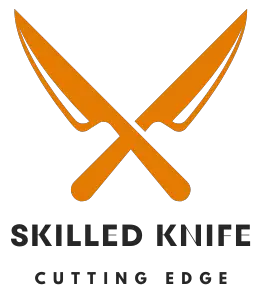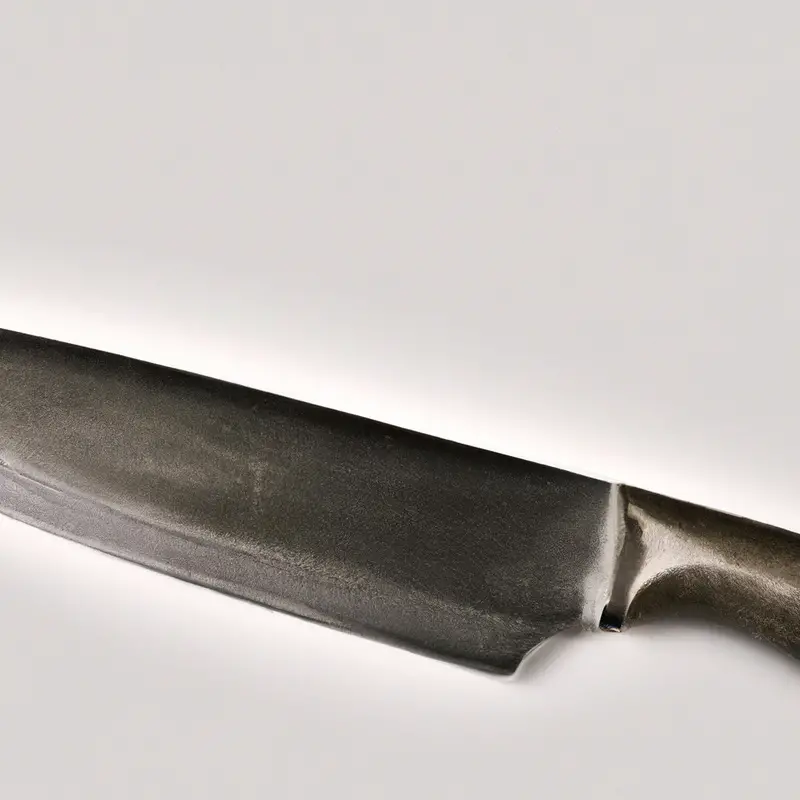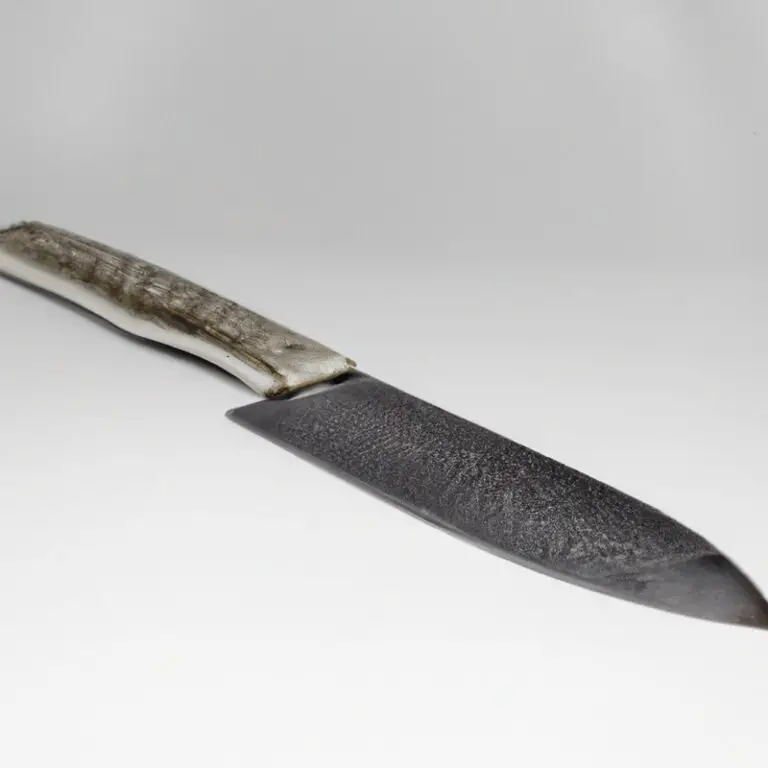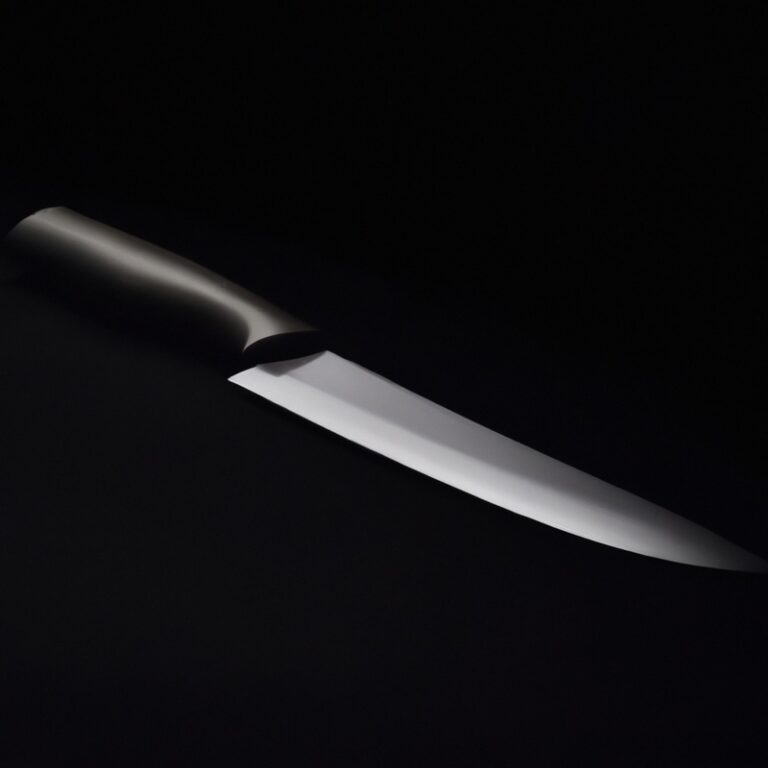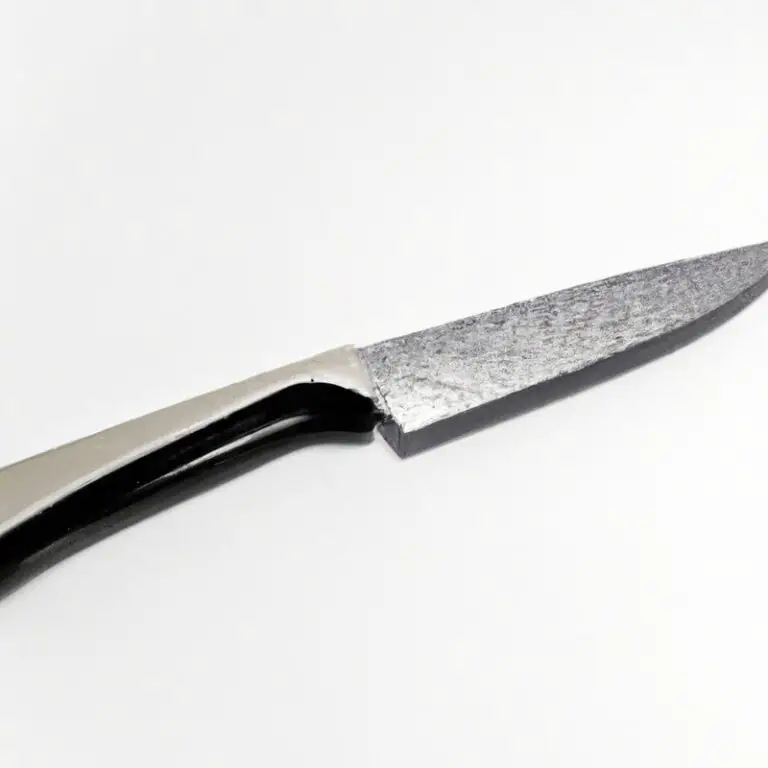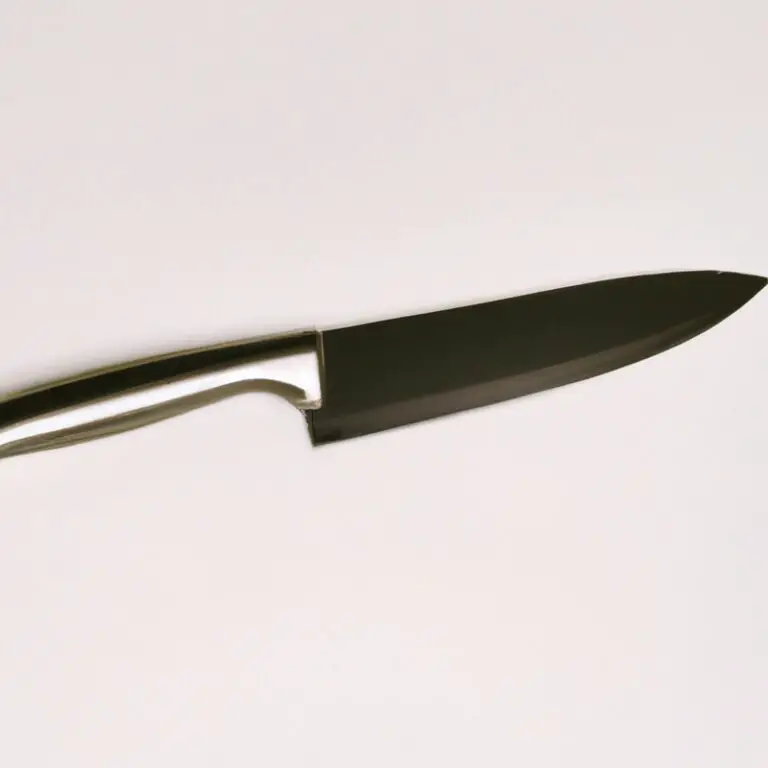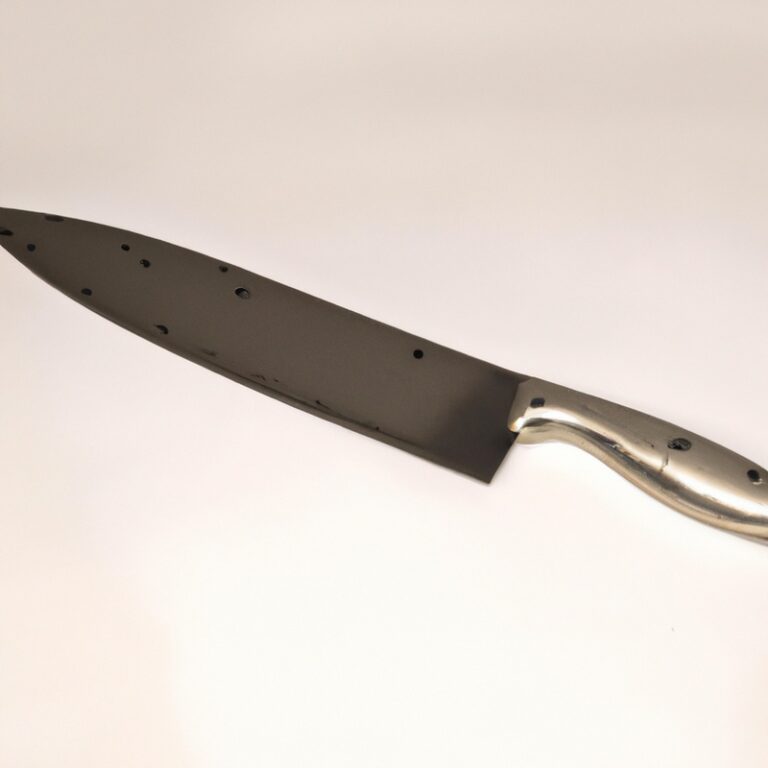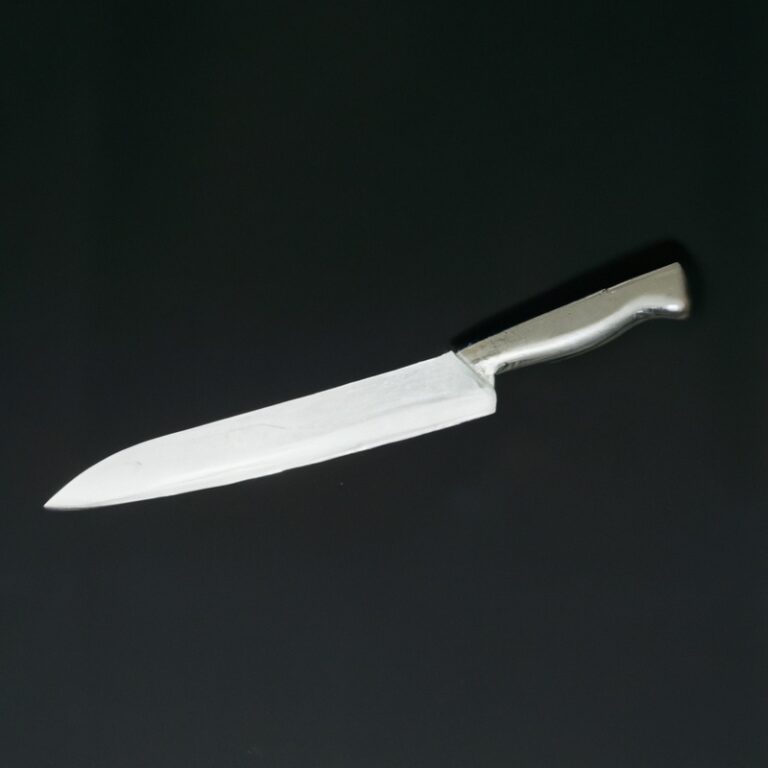Which Knife Steel Is Ideal For Precision Cutting?
Key Takeaways:
- High-carbon stainless steel is widely considered the ideal material for precision cutting knives due to its superior sharpness and durability.
- Advanced steels like VG-10 and S30V offer exceptional edge retention, making them a popular choice for precision cutting tasks.
- When selecting the ideal knife steel for precision cutting, factors such as hardness, toughness, and corrosion resistance should be carefully considered.
- Overall, the choice of knife steel for precision cutting depends on personal preference, desired cutting performance, and budget.
Are you tired of struggling with dull knives that just can’t seem to make those precise, clean cuts? Well, fret no more because I’m here to help you navigate the world of knife steel and find the perfect blade for all your precision cutting needs.
In this article, we’ll dive into the nitty-gritty of knife steel and explore why it’s so crucial to choose the right one.
We’ll also discuss the key factors you should consider when selecting knife steel for precision cutting. So, grab your sharpening stones and get ready to slice through the confusion and make the cut!
| Steel Type | Pros | Cons |
|---|---|---|
| VG-10 | Durable, retains sharpness, good corrosion resistance | Expensive, difficult to sharpen |
| SG2 (Super Gold 2) | Extremely sharp, excellent edge retention | Expensive, may chip if not used properly |
| High Carbon Steel | Excellent sharpness, easy to sharpen | Prone to rust and corrosion, requires frequent maintenance |
| AUS-8 | Affordable, good balance of sharpness and durability | Less edge retention compared to higher-end steels |
Understanding the Importance of Knife Steel in Precision Cutting
Why Knife Steel Matters in Precision Cutting
Knife steel is a crucial factor in precision cutting because it directly affects the performance and longevity of a knife. The quality of the steel determines the sharpness and edge retention of the blade, allowing for precise and clean cuts.
Additionally, different types of steel offer varying degrees of corrosion resistance, toughness, and durability, which are vital for precision cutting tasks.
By choosing the right knife steel, you can ensure optimal cutting performance and enhance your overall cutting experience.
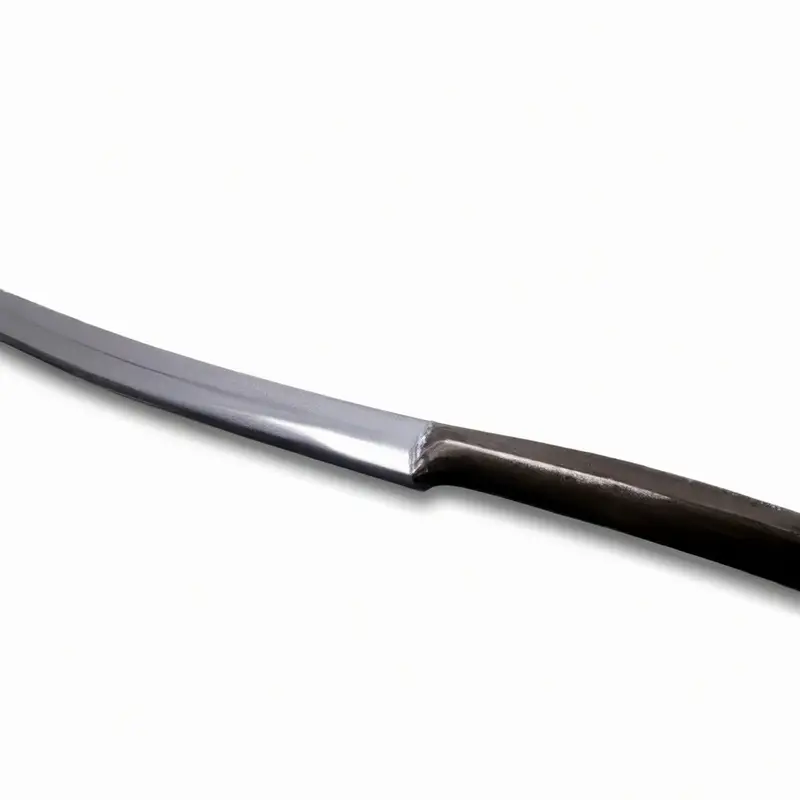
Factors to Consider When Choosing Knife Steel for Precision Cutting
When choosing knife steel for precision cutting, there are several important factors to consider.
- Hardness: Look for a steel with high hardness to ensure a sharp and long-lasting edge.
- Edge Retention: Consider steels that have excellent edge retention properties to minimize the need for frequent sharpening.
- Corrosion Resistance: Opt for stainless steel or steel with good corrosion resistance if you work in a humid or wet environment.
- Toughness: Choose a steel that is tough and durable to withstand repeated use without chipping or breaking.
By considering these factors, you can find the ideal knife steel that meets your needs for precision cutting.
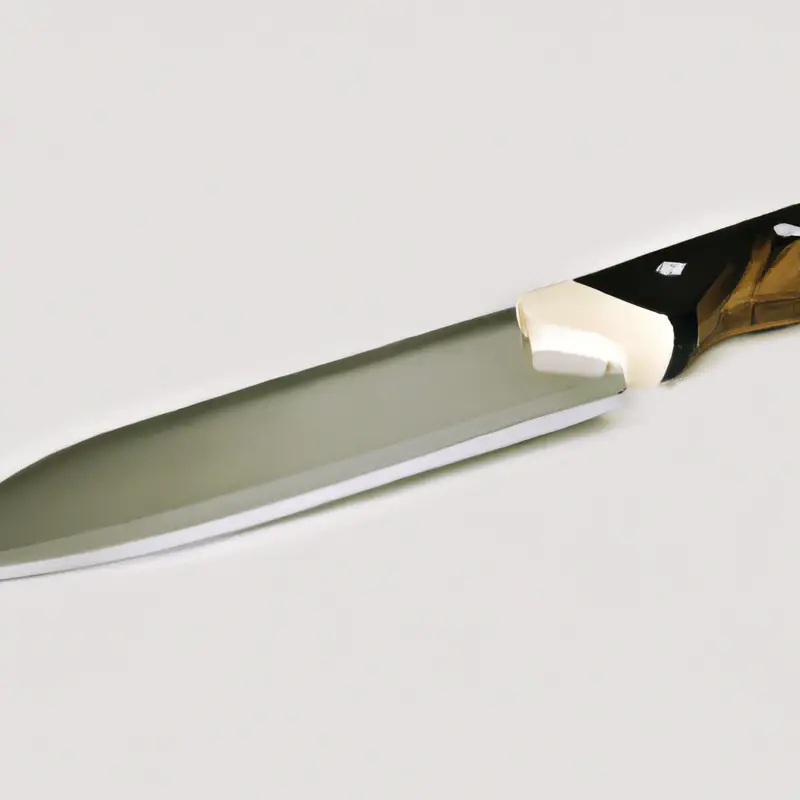
Types of Knife Steel for Precision Cutting
Stainless Steel
Stainless steel is a popular choice for precision cutting blades due to its excellent corrosion resistance and durability. It is a type of steel alloy that contains chromium, which forms a protective layer on the surface of the blade, preventing it from rusting or staining.
Stainless steel is also known for its strength and sharpness retention, making it ideal for tasks that require precision and accuracy.
Additionally, stainless steel is easy to maintain and clean, which is an added advantage for professionals or home cooks who use their knives frequently.
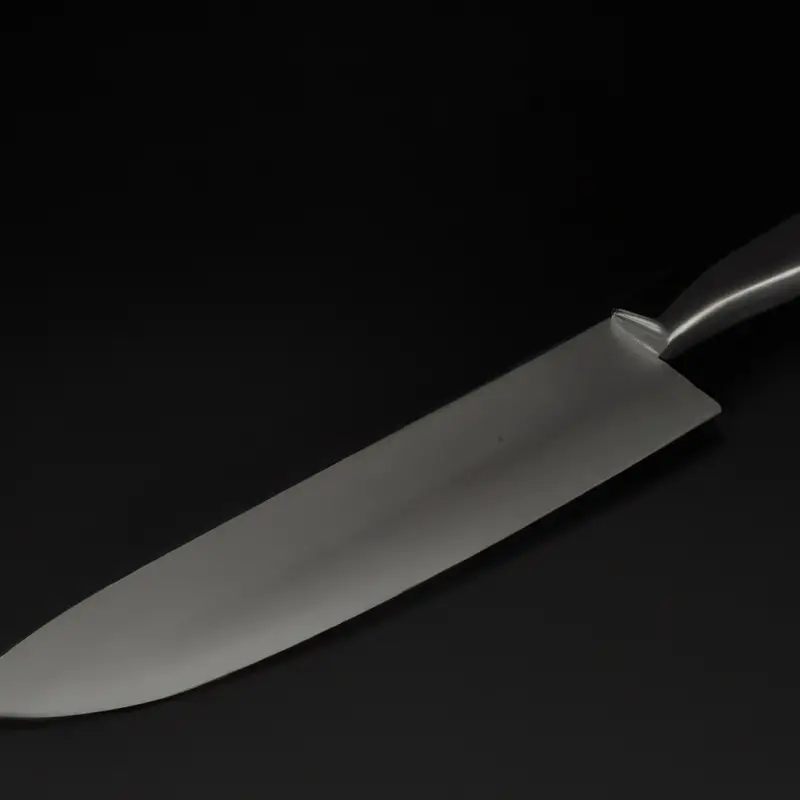
High Carbon Steel
High Carbon Steel is a popular choice for precision cutting.
It is known for its exceptional hardness and edge retention, making it ideal for tasks that require precise and clean cuts.
High carbon steel is also easy to sharpen and maintains its sharpness for a long time.
However, it is important to note that high carbon steel is more prone to corrosion, so proper care and maintenance are necessary to prevent rusting.
Overall, if you prioritize sharpness and edge retention in your cutting tools, high carbon steel is a great option to consider.
Damascus Steel
Damascus Steel is a popular choice for precision cutting. It is known for its distinctive pattern and superior strength.
What makes Damascus Steel unique is its composition of different layers of steel folded and forged together.
This process creates a blade that is resistant to wear and tear, while also offering excellent edge retention. The intricate patterning on the blade is not just for aesthetics; it also helps to reduce surface resistance, allowing for smoother and more precise cuts.
Damascus Steel knives are highly sought after by professional chefs and knife enthusiasts alike for their beauty and performance.
Ceramic Steel
Ceramic steel is a type of knife steel that offers exceptional hardness and wear resistance.
It is made from a high-grade ceramic material, typically zirconium oxide.
Ceramic steel blades are known for their ability to hold a highly sharp edge for a long time, making them ideal for precision cutting tasks.
Additionally, ceramic steel is non-reactive and non-magnetic, which means it won’t affect food flavors and it won’t rust.
However, ceramic steel blades are brittle and can chip if mishandled or dropped.
Regular honing is also necessary to maintain their sharpness.
Comparing Knife Steel for Precision Cutting
Sharpness and Edge Retention
Sharpness and edge retention are key factors to consider when choosing a knife steel for precision cutting. The sharpness of a knife determines its ability to make clean and precise cuts, while edge retention refers to how well the blade maintains its sharpness over time.
High-quality knife steels, such as VG-10, S30V, AUS-8, and ZDP-189, are known for their excellent sharpness and edge retention.
These steels are carefully engineered to hold a sharp edge for extended periods, allowing for efficient and precise cutting tasks. Regular sharpening and honing are essential to maintain the sharpness and edge retention of your knife steel.
Corrosion Resistance
Corrosion resistance is a vital factor to consider when choosing knife steel for precision cutting. This characteristic determines how well the steel will resist rust and other forms of corrosion.
It is important to select a steel that is resistant to moisture and oxidation, as this can affect the longevity and performance of the knife.
Stainless steel is a popular choice for its excellent corrosion resistance, while high carbon steel tends to be more susceptible. Proper maintenance and care, such as regular cleaning, can help prolong the corrosion resistance of the knife steel.
Toughness and Durability
Toughness and durability are key factors to consider when choosing knife steel for precision cutting. Toughness refers to the ability of the steel to withstand impact and resist chipping or breaking.
Durability, on the other hand, refers to the steel’s ability to maintain its sharpness and edge retention over time.
These characteristics are important for tasks that require frequent cutting and slicing, as they ensure that the knife can handle the demands of precision cutting without compromising its performance. Whether you’re working with tough or delicate materials, a knife made from a steel known for its toughness and durability will be your reliable companion.
Popular Knife Steel for Precision Cutting
VG-10 Steel
VG-10 steel is a popular choice for precision cutting. It is known for its exceptional sharpness and excellent edge retention.
This steel is made from a combination of high carbon content and added vanadium and chromium, which enhances its hardness and corrosion resistance.
VG-10 steel is also relatively easy to sharpen, making it a preferred option for those who value precision cutting. Overall, VG-10 steel is a reliable choice that delivers both durability and performance in various cutting tasks.
S30V Steel
S30V steel is a highly popular choice for precision cutting. It is known for its outstanding edge retention, which means you won’t have to sharpen it as often.
The steel’s excellent hardness also makes it very resistant to wear and tear.
Additionally, S30V steel has high corrosion resistance, ensuring that your blade remains in top condition even in wet or humid environments. Overall, S30V steel is a reliable option for those seeking a knife with long-lasting sharpness and durability.
AUS-8 Steel
AUS-8 Steel is a popular choice for precision cutting. It is known for its excellent balance of hardness and toughness, making it ideal for tasks that require sharpness and durability.
AUS-8 Steel offers good edge retention, meaning it can maintain its sharpness for longer periods of time.
Additionally, it has good corrosion resistance, making it suitable for use in kitchens or other environments where moisture is present. Overall, AUS-8 Steel is a reliable option for those seeking precision cutting capabilities.
ZDP-189 Steel
ZDP-189 Steel is a high-end knife steel known for its exceptional edge retention and hardness.
It is a powdered metallurgy steel, which means it is made by blending different elements together in a powder form and then compressing and heating it to create a solid material.
This process results in a steel with fine grain structure, allowing for a razor-sharp edge that lasts longer.
ZDP-189 steel is a great choice for precision cutting tasks that require long-lasting sharpness, such as slicing meat or delicate food preparation.
However, it can be more challenging to sharpen due to its hardness.
Maintenance and Care for Knife Steel
Proper Cleaning Techniques
Proper cleaning techniques are essential for maintaining the performance and longevity of your knife steel.
Here are some straightforward tips to keep in mind:
- Hand wash: Always wash your knife steel by hand with warm, soapy water. Avoid putting it in the dishwasher as the high heat and harsh detergents can damage the steel.
- Dry thoroughly: After washing, make sure to dry your knife steel thoroughly with a clean towel to prevent moisture from causing rust or corrosion.
- Avoid abrasive materials: Use a soft sponge or cloth to clean your knife steel. Scrubbing pads or abrasive cleaners can scratch the surface and affect its performance.
- Oil regularly: Apply a food-safe oil to the blade and handle periodically to protect against rust. Simply wipe with a cloth and a few drops of oil, then remove any excess.
Remember to handle your knife steel with care, and it will serve you well for precision cutting tasks.
Happy cooking!
Regular Sharpening and Honing
Regular sharpening and honing are essential for maintaining the performance and longevity of knife steel.
Sharpening involves removing metal to create a new edge while honing is done to realign the edge.
Both processes ensure a sharp and precise cutting edge.
It is recommended to use a sharpening stone or system for sharpening and a honing rod for honing.
Follow the manufacturer’s instructions and maintain a consistent angle during sharpening.
Regular sharpening and honing will keep your knife steel in top condition for precision cutting.
Storage and Handling Tips
Properly storing and handling your knife steel is crucial for maintaining its performance and longevity. Here are some tips to keep in mind:
- Store your knife in a dry and clean environment to prevent moisture and rust. Avoid storing it in a sheath or drawer where it can come into contact with other objects.
- Use a blade cover or blade guard to protect the edge when the knife is not in use. This will prevent accidental damage or injury.
- Avoid exposing your knife to extreme temperatures or prolonged heat, as this can affect the hardness and integrity of the steel.
- When handling your knife, avoid using excessive force or twisting motions that could cause the blade to chip or warp.
- Regularly inspect and clean your knife to remove any dirt, debris, or food residue. Use mild soap and warm water, and always dry the knife thoroughly before storing it.
Final Verdict
Understanding the importance of knife steel in precision cutting is crucial for achieving optimal results. Factors such as sharpness, edge retention, corrosion resistance, toughness, and durability should be carefully considered when choosing knife steel.
Popular options like VG-10, S30V, AUS-8, and ZDP-189 offer excellent performance in precision cutting.
Proper maintenance and care, including regular cleaning, sharpening, and proper storage, will help prolong the lifespan of the knife steel. By selecting the right knife steel and following proper maintenance practices, you can enhance your precision cutting experience and achieve outstanding results.
